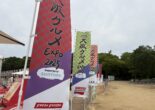The hiring process in Japan can shock job seekers due to the unwritten rules and code of conduct that companies expect you to be acquainted with. Read on to uncover all you need to know about the interview process in Japan and step into that meeting fully prepared.

I remember applying for a finance position with the Coca-Cola Company and telling my hiring manager that I don’t drink Coke. Even though I really don’t consume the carbonated drink, that statement alone could have lost me a job.
However, I got the job because I continued my sentence with, “but I do love Minute Maid and only rely on Powerade for my extra hydration needs.” My last sentence proved that I was well-versed with the company’s products, which is a plus for any interview.
The same applies to job interviews in Japan, where hiring managers may surprise you with personal questions, although the process is more straightforward compared to other countries. Here are some tips to remember for your interview.
10 tips to nailing that job interview
- Never ever be late. If trains are hardly late in Japan, your hiring manager expects you to be on time for the interview. Be 5-10 minutes early at the venue. To account for unforeseen incidents, you can go to a coffee shop or chill near the meet-up point so you can simply walk to the interview.
- Remember to knock three times on the door (if any) before entering the room and say “Shitsurei shimasu” (失礼します/しつれいします) or excuse me. Only enter after hearing “douzo” (please). Open the door slowly, close the door quietly and take a seat close to the doorway or follow the interviewer’s instructions.
- Portray a cheerful attitude as you speak and sit up straight during the interview. This also helps in boosting your confidence.

- Have your handwritten resume “rirekisho” (履歴書) ready, along with your passport or residence card. You can also bring a small notebook if you need to take notes.
- An interview for a full-time position often entails wearing a black suit/skirt with a white-collar shirt, a dark-colored tie, and black shoes/low heels with black socks/stockings. However, you can ask in earlier communication with the company for the interview attire because some require you to dress in other styles like chic business casual, depending on the position.
- Be acquainted with typical Japanese interview questions such as “Jikoshoukai wo onegai shimasu” (自己紹介をお願いします/じこしょうかいをおねがいします) which is a request to introduce yourself. You can go from general information like your background to more specific details about your skills and experiences related to the job.

- Be prepared for more personal questions, such as your hobbies, your favorite Japanese food, plans for the next year or your ambitions, your strengths and weaknesses, or even how you’ll handle scenarios like disagreeing with a colleague. This is a crucial step for companies to decipher whether you’re a good fit for the role.
- Get ready to answer why you applied for the job. You might hear the following sentence “oubodouki wo oshiete kudasai” (応募動機を教えて下さい/おうぼどうきをおしえてください). Be honest but not brutally honest, like saying this company was your last choice.
- Learn to adapt to the language used in the interview. For example, if the job is for an English-speaking role, your interviewer might not be at the same level of fluency as you, so you will need to make some changes to how you talk.
- End the interview as professionally as how you started it by saying thank you for the opportunity, bowing, walking to the door (if any), and turning around to excuse yourself before exiting the room.

Of course, there are many jobs in Japan that don’t need a full grasp of Japanese. For example, my foreigner husband landed a job at a new 5-star hotel in Shinjuku. I stumbled upon the job listing on Craigslist (crazy, I know). Contacted the hiring manager through email, they had a phone interview through broken Japanese and eventually conducted a face-to-face interview with the other managers. Maybe it was his hassle-free, permanent visa, his “white skin,” or his charm, but he got the job after an interview. He’s been there for three years now and even got promoted!
Hopefully, his example could encourage those looking for a job. You’ll never know where exactly you’ll discover a lead, but when you do, give your best at the interview, and I wish you all the luck!



